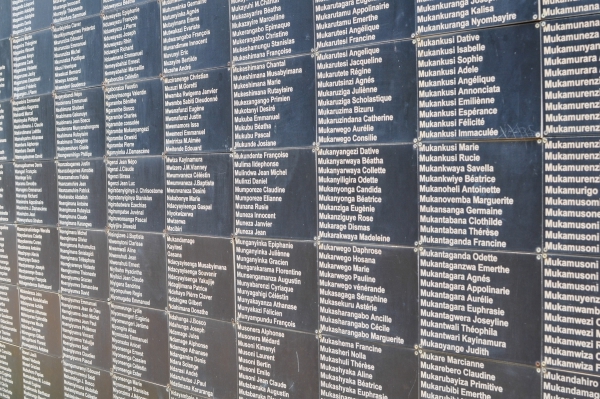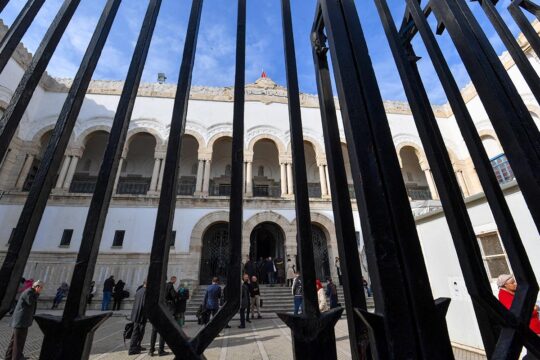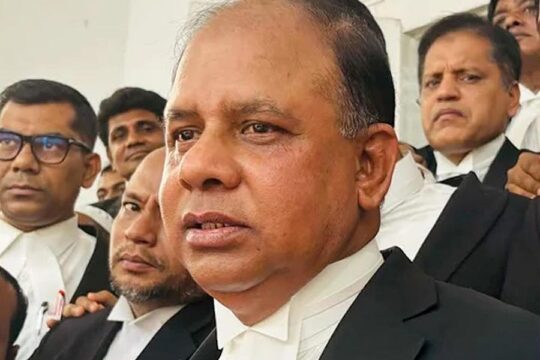Several hot debates took place this week on transitional justice, a field that is naturally controversial because still developing and often faced with extreme situations in very different countries.
In Tunisia, for example, an International Crisis Group report added a critical voice of authority on the transition process. “A transitional justice expert would tell you that what is happening in Tunisia today is ill-planned transitional justice or `revolutionary justice`,” the report’s author Michaël Bechir Ayari explained in an interview with JusticeInfo. “There are various transitional mechanisms, based on deals, whereas according to international norms, what should have been done first was to have a clear vision of the number of victims, draw up an overview of the conflicts that occurred and report on the violations.”
According to this ICG analyst, Tunisia needs, in order to promote business and the economy, to “find a middle way that would help renew the trust of the political elite and the people”, and its Truth and Dignity Commission should “mix a little water with its wine”.
It remains to be seen, however, what would be the political price to pay for such compromises.
Another recurring debate in transitional justice is who tries whom and where. This question is raised by the ongoing genocide trial in France of two former Rwandan mayors. The trial is taking place under the suspicious eye of the Rwandan government and victims’ associations, owing to the ambiguous role of France, which remained allied to the end of the Rwandan genocide with the regime of President Juvénal Habyarimana. The two mayors have tried to play down their role, but as JusticeInfo reported, they were both key figures in the Rwandan dictatorial regime.
Another former Rwandan mayor, Ignace Bagilishema, came to testify, 15 years after he was acquitted by the UN’s International Criminal Tribunal for Rwanda (ICTR). “His lawyer, François Roux, successfully placed his bets at the time on gathering facts, and going to the field,” explains Franck Petit, JusticeInfo’s correspondent at the Paris trial. “He was the first ICTR lawyer who managed to go himself to Rwanda to gather evidence on the ground and, in another first, get the ICTR judges transported to the sites in question. That makes us think of lawyer Françoise Mathé’s request here on the first day of the Paris trial that the Defence be granted transport to Rwanda.”
Amnesty International, the European Centre for Constitutional and Human Rights (ECCHR), International Federation for Human Rights (FIDH), Human Rights Watch, REDRESS, and TRIAL issued a joint statement on May 19 urging the European Union and its member states to “use national courts to fight impunity”. “While, in principle, it would be preferable for justice to be carried out in the countries where the crimes are committed, this is often not possible,” says the statement. “The application of universal jurisdiction reduces the existence of `safe havens`, where perpetrators of crimes can enjoy impunity. It is a critically important avenue toward justice for victims who have nowhere else to turn and can help spur accountability in the countries where the crimes were committed.”
It is now up to the French judges to prove this. On the other hand, the dubious cancellation of international arrest warrants against suspected coup leaders in Burkina Faso, reported by JusticeInfo, casts doubt on the independence of the judicial system in that country.
Another debate is developed on the website www.Justiceinconflict.org which presents an intelligent argument for transitional justice whilst recognizing at the same time its limits. The article argues for the idea of “positive complementarity” between different jurisdictions. Trying Congolese warlord Jean-Pierre Bemba at the International Criminal Court for crimes committed in the Central African Republic does not mean that the CAR cannot also prosecute international crimes committed by its own citizens.







